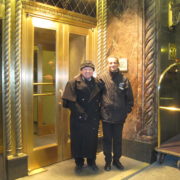Introduction
Chapter posts
- Extremely Challenging Hospitality Jobs: Shout-out to Boston’s Neptune Oyster Host/Servers (03/23/2019)
- Inspiration (02/14/2012)
- “Without Illegal Aliens, There is No Restaurant Business” (12/28/2010)
- Merry Christmas from Boston (12/25/2010)
- Blast Magazine Interview (11/16/2010)
I had to write this book. Every fiber in my being told me to. I’ve been writing it in my mind for several years while working, working out, walking, swimming, showering, dreaming, dining out, observing, and interacting with people from all walks of life. I’ve been writing it in airports, convenience stores, cabs, buses, bars, hospital waiting rooms, restaurants, train stations, meetings, supermarkets, on beaches, city sidewalks, subways and trains, at Fenway Park, the Registry of Motor Vehicles, and everywhere I’ve observed human beings. Almost everyone I spoke with about the idea of this book had their own stories; the people who didn’t are the ones that this book is about. When I heard the intensity and conviction in the tone of people’s voices while sharing their stories, I knew I had to get to work.
Human dynamics have always intrigued and fascinated me. Have you ever had one of those moments or days when you say, Is it me,? How can people act that way and think it’s ok? I do, all of the time. I often witness appalling behavior and wonder who are these people, and how did they end up that way. It’s not ok to treat service industry workers, and each other poorly. If most of us long for a return to civility, decency and mutual respect, we need the courage to speak up, get involved, and advocate for what is right.
In addition to my observations, opinions and suggestions, I wanted this book to be about real people with real stories. One of those people is a dear friend from high school, Kathy Davey, who sent me an e-mail when I told her about the book. Kathy is a manager with a Boston-area insurance agency, and writes, I love the book idea, especially the subtitle about the customer not always being right. I use this in training new employees all the time, but follow it with, but the customer is ALWAYS the customer.
I’m acutely aware of Kathy’s implied message, and I want to be extremely clear on one premise before I proceed. Doing a great job means showing up on time, prepared for work, trained and dressed properly, knowing your job, being pleasant and attentive, and hustling your ass off to provide exceptional service. Great customer service workers are resourceful, resilient and willing to do whatever it takes to get the job done right. Ideally, employees should be invested in what they are doing and act as ambassadors for the company that they work for. Understanding and embracing hospitality is crucial. Sometimes you need to suck it up, put your game face on, and do a great job even though you don’t want to be there. Even when you’re at the tail end of a double and ‘the dogs are barking’ you need to persevere and accomodate customers as much as possible. I realize that if you’ve been a server for a long time, and you’ve been beaten down shift after shift, year after year, that it’s hard to be pleasant and on top of your game all of the time. However, the job is still a choice (in most cases), and you have to keep trying, or get out.
I know there are bad and indifferent servers out there; we’ve all encountered them. I also know that there are a lot of bad customers in the world. The customer’s approach and attitude have as much influence on the success of the interaction as the server’s does. Customers need to be more flexible and patient, and not assume that every miscue is the server’s fault. There’s often a lot more going on behind the scenes than customers realize, and all servers should be given the benefit of the doubt and treated with dignity, respect, and patience.
In preparation for writing this book, I sent a questionnaire to my family, friends and more than 300 people I met while interacting with them at their work. The responses to the questionnaire, and the conversations I had with servers, are very important because they represent opinions and personal stories beyond my own. I wanted to share fresh perspectives and insight from ordinary people who have witnessed, first-hand, what it’s like dealing with the public on a daily basis in a variety of jobs. Some of the jobs that they’ve held in the past or are currently working at include; Doorman, Laborer, Hair Stylist, Waitress, Emergency Room Nurse, Cashier, Bank Teller, Caddie, Receptionist, Teacher, Grave Digger, Table-side chef, Cabbie, Valet Parker, Restaurant staff trainer, Fenway Park Server, Maitre’ D, Real Estate Agent, Automotive Service Manager, Coach, Retail Sales, Chef, Airline Service Rep, Banquet hall manager, Business owner, Lawyer, Security Guard, Sandwich maker, Sommelier, Chambermaid, Bartender, Operations Director, Professor, Food Runner, Stock Boy, Corporate Trainer, Cocktail Server, District Attorney, Delivery Man, Hostess, Finance, Concierge, Operations Director, Restaurant Manager, Driver, Bill Collector, Barista, Judge, Busboy, Company President, Barback, Professional Organizer, Tour Guide, Waiter, Counter Sales, Bellman, and Real Estate Appraiser.
Jobs I’ve personally held so far include: Supermarket Bagger, Valet Parker, Landscaper, Maintenance Man, Bartender, Restaurant Manager, Painting Contractor, Dishwasher, Cafeteria Manager, Food Concession Worker, Laborer, Plumber’s Apprentice, Cemetery Worker, Roofer (three grueling, freezing days), Security Guard at college infirmary (one night, graveyard shift/longest night of my life), Sales Assistant, Stock Broker, Corporate Manager, and Mortgage Loan Officer.
From all of these experiences and observations, and the responses to my questionnaire, I have included several suggestions on how we can all become better customers and how we can ‘serve’ fellow human beings better every day…
When I used to bartend I always wondered how, after I greeted a customer with, Hi, how are you,? they would tersely demand, Gimme a Bud. Often, I would reply with a mockingly playful, Pretty good thanks. Good people would often laugh and apologize, or respond with something lighthearted, and we’d get along great. A small percentage of people would mumble something to each other or to themselves, as if to say, Just get me my beer, and if the interaction was frosty, so was the tip. I really tried hard to ‘turn’ these people, find some common ground, break through their grumpy façade, and bring out the good in them. Plenty of ‘tough’ customers did come around, but there were always a few who never did. The rude and mean customers are really bad for morale and their negativity can drag you down. They’re the ones you remember the most. I started to call these people the 5% factor. My theory was that my rude and impossible customers at the bar were the same people who were rude and impossible everywhere they went, and that they were only 5% of the population. They were the people who cut in line, didn’t RSVP or say thank you when you waited and held a door for them; they littered, and screamed into their cell phones in public. They were the same entitled, arrogant assholes that everyone despises, that we look at every day and say, How can anyone behave that badly? How can these narcissistic people have so little regard and consideration for those around them and make everyone so uncomfortable by their actions? My hunch is that the 5% factor is steadily growing, and that civility and common decency are declining. Bad behavior is becoming more rampant; just ask anyone who deals with customers all day for a living. It’s not acceptable to poke a restaurant owner in the ass with a fork and demand your food, or to raise your hand, snap your fingers, and yell Check to a hostess or server when you’re ready to pay; or to turn a delivery boy, struggling with a heavy box, away from the front door and redirect him to the ‘servant’s entrance’ around back. It’s wrong to whistle like you’re calling a dog, wave like you’re hailing a cab, or yell, Hey you when you need to get someone’s attention. All of these true stories are included on the pages that follow.
To those of you who say, Don’t let them bother you, or You’re letting them win if they get to you, I say, obnoxious and rude behavior should not be tolerated, and more people need to step up, get involved, and confront it. No servers, workers, or fellow human beings should have to endure abusive customers, and no one should have to tolerate offensive behavior. It’s time to reverse the trend. If you’re as passionate about this topic as I am, I invite you to read on.



